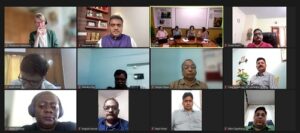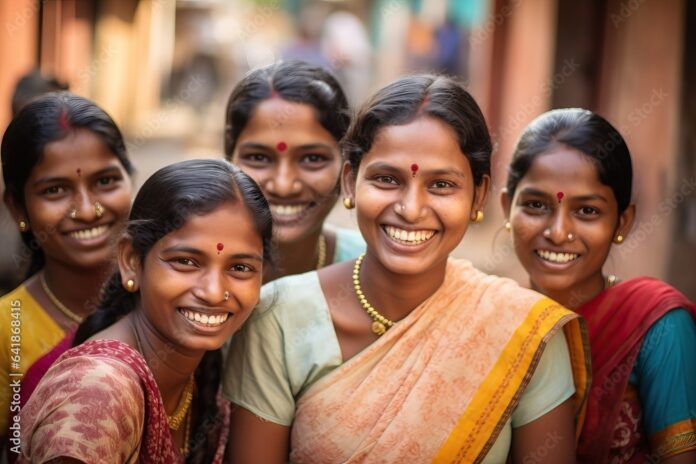By Alok Mohit
Patna: Global experts on Wednesday said rural women, despite facing more adverse impacts than men during the COVID-19 pandemic, displayed remarkable resilience.
Speaking at a webinar for journalists the experts said women, even in the wake of disruptions in supply chains, closure of markets, and lockdowns, stood out by continuing their hard work, taking on additional responsibilities and sustaining agriculture despite being vulnerable to threats and inequities. “Their remarkable leadership in this time of crisis should serve as a guide for policymakers, development practitioners and agriculture extensionists to support women-led development and women’s leadership in agri-food systems,” they added.
The webinar was organised in the lead-up to the international gender research conference, ‘From Research to Impact: Towards Just and Resilient Agri-Food Systems,’ scheduled for October 9 to 12 in New Delhi. The conference aims to share cutting-edge knowledge and bridge the gap between research and practice to promote gender equality and socially inclusive, resilient food systems. It is being hosted by the Indian Council of Agricultural Research (ICAR) and the CGIAR GENDER Impact Platform.
Speaking on the occasion, Ranjitha Puskur, CGIAR gender researcher and Country Representative for India at the International Rice Research Institute (IRRI), said: “Multiple crises, including climate change and COVID-19, have exposed the vulnerability of agricultural communities, especially women. However, they have also highlighted women’s resilience and their pivotal role in addressing these challenges. Women’s collectives have proven to be crucial in enabling this resilience, and India’s history of self-help groups is a shining example.”

“During this conference we will discuss how policies and innovations can strengthen collective action and empower women to become more resilient,” she added.
Commending Bihar and Uttar Pradesh for their targeted policies for women, experts emphasised the need to sharpen the focus on women’s leadership in creating resilient and sustainable agri-food systems.
Eileen Bogweh Nchanji, a CGIAR gender specialist at the Alliance of Bioversity International and CIAT, emphasized the role of gender researchers in developing technologies and innovations to enhance women’s resilience. “Women require different combinations of socio-technical innovations to build equitable, resilient, and healthy systems in diverse contexts,” said Nchanji, who is leading research across 32 countries in Central, Eastern, Southern, and Western Africa. She also highlighted how policymakers in Africa were looking to India for lessons in establishing public-private partnerships, stating, “It is time to scale up our successes through public-private partnerships.”

Nicoline de Haan, director of the CGIAR GENDER Platform, said, “We are combining theoretical and practical knowledge to provide rural women and policymakers with better tools, ultimately achieving greater resilience for everyone.” She said the CGIAR GENDER Impact Platform was convening its global network of gender researchers and uniting them with other researchers, practitioners, and policymakers to assess the progress of agricultural gender research and propose on-the-ground innovations.
Seema Jaggi, assistant director-general (HRD) of the Indian Council of Agricultural Research, said the upcoming conference would bring together experts from across the globe to deliberate on gender inequality in agriculture and food systems and share their findings to improve research and practice. “ICAR has been at the forefront of agricultural research, education, and extension activities for productivity enhancement and diversification of Indian agriculture. We are certain that the outcomes and discussions will complement our endeavour to ensure innovation-led, inclusive, and sustainable agricultural growth in the country,” she added.
Marianne Gadeberg, a communications consultant with the CGIAR GENDER Impact Platform, said, “This conference, following the successful G20 Summit, provides a unique opportunity for researchers and practitioners to discuss how their collaborative efforts can support and advance the commitments outlined in the New Delhi Leaders’ Declaration, particularly concerning women-led development and women’s leadership roles in climate action, food security, and nutrition.”
The webinar was moderated by Aparajita Kujur, South Asia regional strategic communication, IRRI. Many journalists participated in the discussion, sharing insightful perspectives. The webinar was organized by GreyMatters Communications and the development communication platform Fijeeha.
(Author Alok Mohit is former senior News Editor of Hindustan Times Patna and Chandigarh editions; can be contacted at mohit.alok19@gmail.com)




